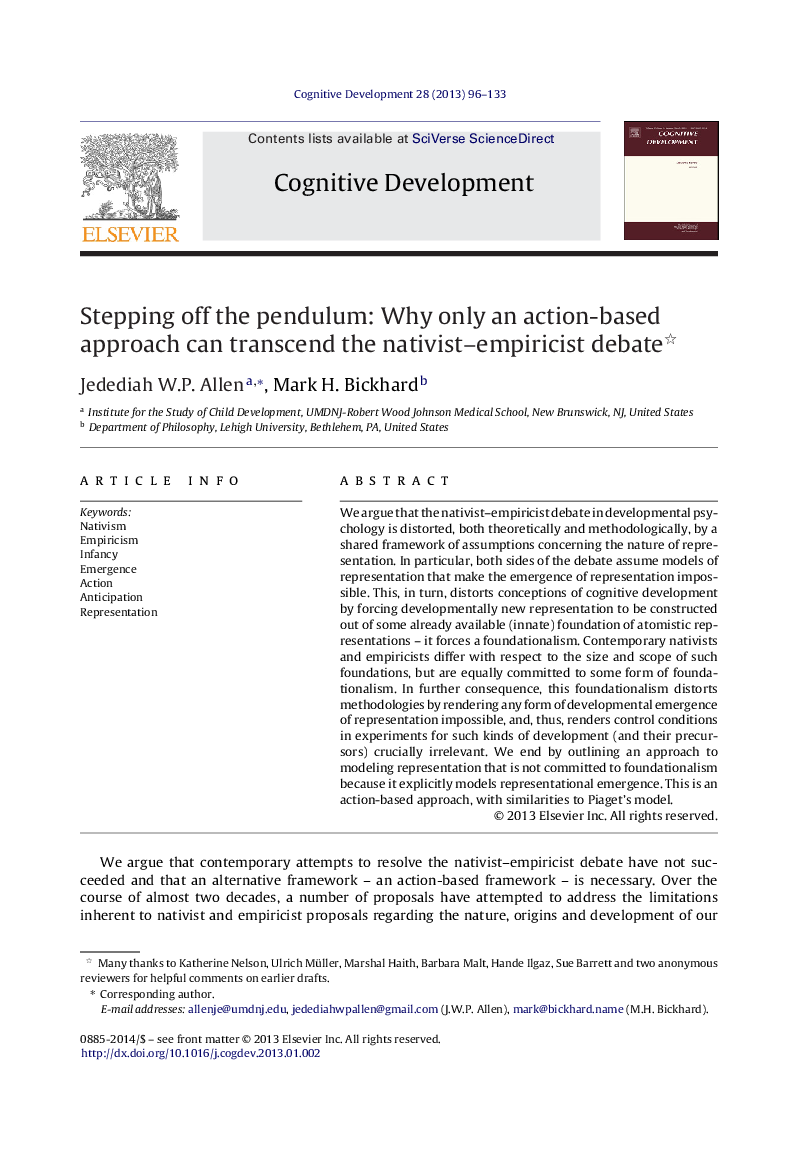| Article ID | Journal | Published Year | Pages | File Type |
|---|---|---|---|---|
| 916529 | Cognitive Development | 2013 | 38 Pages |
We argue that the nativist–empiricist debate in developmental psychology is distorted, both theoretically and methodologically, by a shared framework of assumptions concerning the nature of representation. In particular, both sides of the debate assume models of representation that make the emergence of representation impossible. This, in turn, distorts conceptions of cognitive development by forcing developmentally new representation to be constructed out of some already available (innate) foundation of atomistic representations – it forces a foundationalism. Contemporary nativists and empiricists differ with respect to the size and scope of such foundations, but are equally committed to some form of foundationalism. In further consequence, this foundationalism distorts methodologies by rendering any form of developmental emergence of representation impossible, and, thus, renders control conditions in experiments for such kinds of development (and their precursors) crucially irrelevant. We end by outlining an approach to modeling representation that is not committed to foundationalism because it explicitly models representational emergence. This is an action-based approach, with similarities to Piaget's model.
